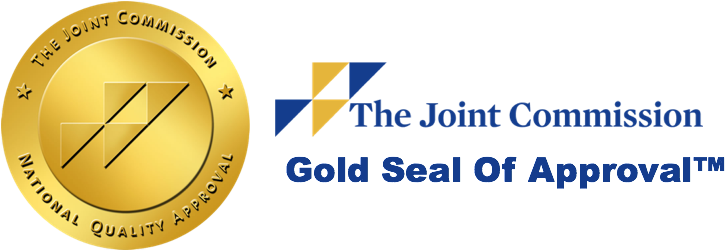Adult attention-deficit/hyperactivity disorder (ADHD) is a fairly common condition, affecting an estimated 2.5% to 5% of the adult population, with some research suggesting that these rates may be increasing. While it is relatively common, it is frequently undiagnosed and untreated, with less than 20% of adults with the condition receiving an appropriate diagnosis and treatment. If left untreated, ADHD can lead to problems with productivity, interpersonal relationships, and further mental health problems.
Untreated ADHD in adults can also lead to problems with anxiety, depression, and substance abuse. If an individual suspects they have ADHD or know that they have untreated ADHD, it is essential for them to talk to a doctor or mental health professional to get the care they need. With proper diagnosis and treatment, many people with ADHD can lead successful and productive lives.
Common Risks of Untreated ADHD in Adults
Mental Health Disorders
Untreated ADHD in adults can lead to mental health disorders like anxiety and depression. This is because ADHD symptoms can lead to focus, concentration, and impulsivity problems. When these problems are not managed effectively, they can lead to feelings of frustration, irritability, and low self-esteem. All of these unmanaged symptoms can further lead to relationship, work, and school problems.
Over time, difficult ADHD symptoms can also increase the risk of developing other mental health conditions such as anxiety and depression. Therefore, it is crucial for individuals with untreated ADHD to seek treatment from a qualified mental health professional to reduce the risk of developing co-occurring mental health disorders.
Substance Use Disorders
When left untreated, ADHD symptoms often force affected individuals to turn to harmful coping mechanisms, such as the use of drugs or alcohol to self-medicate and achieve some measure of control over their lives.
Studies have shown that individuals with untreated ADHD are more likely to develop substance abuse disorders than those without the condition. While the exact reason for this link is not fully understood, it is believed that the impulsivity and poor decision-making skills associated with ADHD may contribute to developing a substance abuse disorder. Additionally, individuals with untreated ADHD may participate in risky behaviors to seek out thrill and excitement.
Poor Work Performance
While ADHD can result in problems with focus and organization, it is essential to remember that everyone experiences these difficulties at times. However, when ADHD is left untreated, it can significantly impair work performance.
Individuals with ADHD may have difficulty completing tasks, staying on task, and following through with instructions. They may also find it challenging to interact with co-workers and manage time effectively.
Untreated ADHD can lead to poor work performance and jeopardize an individual’s employment. If you or someone you know has ADHD, it is important to seek treatment from a qualified mental health professional. With proper treatment, individuals with ADHD can learn how to manage their symptoms and lead successful lives.
Relationship Difficulties
Untreated ADHD in adults can lead to relationship problems for several reasons. For one, people with ADHD may have difficulty focusing on their partners and become easily distracted. Individuals with untreated symptoms may also be impulsive and say or do things without thinking about the consequences. This can lead to arguments and even breakups.
People with untreated ADHD may also struggle with executive function skills such as organization and time management. This can make it difficult to keep up with household chores, pay bills on time, or remember birthdays and anniversaries.
Ultimately, their partner may feel like they are carrying the lion’s share of the workload and begin to resent them. Although, with proper treatment, many of the symptoms of ADHD can be managed, leading to a happier and more fulfilling relationship.
Financial Problems
Many adults with untreated ADHD struggle with financial problems. This is often due to impulsivity, which can lead to overspending or impulsive decisions resulting in financial loss.
In addition, ADHD can interfere with organizational skills and time management, making it challenging to stay on top of bills and manage finances effectively. As a result, adults with untreated ADHD are more likely to experience financial difficulties than those without the condition.
If an individual has ADHD and is struggling with money management, developing strategies for reducing impulsivity and increasing organization is crucial. With proper treatment and planning, individuals can improve their financial situation and avoid the many problems that can arise from untreated ADHD.
Effective Treatment for Adult ADHD
While there is no one-size-fits-all approach to the best treatment for adult ADHD, several interventions have shown promise. Stimulant medication is often prescribed to help improve focus and concentration, and non-stimulant medications may be recommended for those who cannot tolerate or do not respond well to stimulants.
In addition, cognitive-behavioral therapy (CBT) can be beneficial for teaching individuals how to manage their symptoms and develop coping strategies. Other treatment options include support groups, skill-building workshops, and executive functioning coaching.
A mental health professional will ultimately determine the best treatment plan for any individual based on a comprehensive evaluation.
At the Phoenix Recovery Center, both inpatient and outpatient programs are used to help individuals receive the support they need to manage adult ADHD. The Phoenix has onsite psychologists, therapists, support groups, and trained staff to help individuals heal and find the best treatment. With proper treatment, the risks of adult ADHD can be greatly reduced. For more information on how to properly treat ADHD, call The Phoenix Recovery Center at (801) 438-3185.







